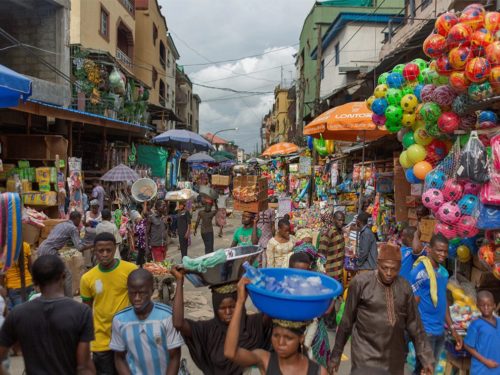The International Monetary Fund (IMF) on Thursday said Nigeria’s economy is expected to grow by 1.9 percent in 2018, up from 0.8 per cent in 2017, mostly owing to fewer disruptions in oil production.
The IMF Senior Resident Representative for Nigeria, Amine Mati, stated this while presenting the “Fall 2018 Regional Economic Outlook for Sub-Saharan Africa” in Abuja.
He noted that some pick-up in the non-oil economy was also responsible for the predicted growth.
Mati said the recovery is expected to contribute about 0.7 percentage points to the region’s average growth in 2018 and lift activity in Nigeria’s trading partners through stronger remittances, financial spillovers and import demand.
He further added that average growth for the region was expected to reach about 3.1 per cent in 2018, up from 2.7 per cent in 2017.
According to him, recovery in sub-Saharan Africa is expected to continue amidst rising risks as growth momentum improved most notably for oil exporters, mainly in Nigeria, but remains subdued in South Africa.
He also said that as the magnitude of capital flows to the region increased, the volatility also increased.
Mati, however, said that further escalation of trade tensions could threaten the recovery, adding that if the tensions persist, it would have potential impact on Gross Domestic Product (GDP).
Mati also said that public debt was diverting more resources toward interests payments, adding that for Nigeria, though debt to GDP was quite low, more than 50 percent of revenue went into interest payments.
He said that increase in revenue was very important to bridge the gap to ensure that revenue to GDP was sufficient to pay up and service the debt profitably.
The IMF representative also said that meeting the Sustainable Development Goals (SDGs would require stronger growth and more financing.
He said that policies that would enhance creation of about 20 million new jobs yearly in the region to meet the demand was needed as meeting the SDGs by 2030 was dependent on that.
Mati, however, said that job creation was complicated by uncertainty on the extent to which technology replaces labour.
Copyright Ships & Ports Ltd. Permission to use quotations from this article is granted subject to appropriate credit given to www.shipsandports.com.ng as the source.
